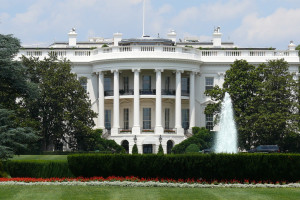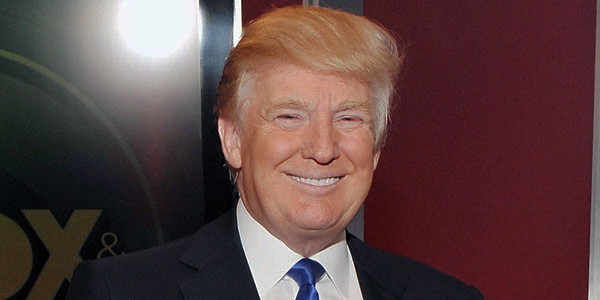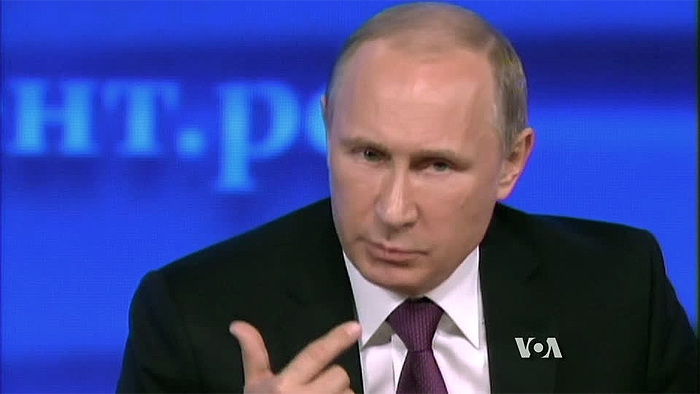Thoughts on first Trump-Putin summit

Subject: Thoughts on first Trump-Putin summit
Date: Wed, 1 Feb 2017
From: Raymond Smith <ray.smith531@gmail.com>
Thoughts on first Trump-Putin summit
By Raymond Smith
Retired from the U.S. Foreign Service. Served six years in Moscow, including three as the embassy’s political affairs counselor. Participated in drafting numerous briefing memoranda for meetings between U.S. leaders and their counterparts. Author of Negotiating with the Soviets and The Craft of Political Analysis for Diplomats.
 Russians’ initial meetings with strangers are often shaped by elements of their political culture that lead them to have in the back of their mind questions that may not even occur to Americans. Does this person have convictions? Can he be intimidated? Will he try to intimidate me? Until he has answered these questions to his satisfaction, it can be difficult for a Russian negotiator to get to the “substantive” issues on the agenda. His subsequent negotiating behavior will be influenced by how he has answered these questions.
Russians’ initial meetings with strangers are often shaped by elements of their political culture that lead them to have in the back of their mind questions that may not even occur to Americans. Does this person have convictions? Can he be intimidated? Will he try to intimidate me? Until he has answered these questions to his satisfaction, it can be difficult for a Russian negotiator to get to the “substantive” issues on the agenda. His subsequent negotiating behavior will be influenced by how he has answered these questions.
 What are the reasons for this and what does it mean for the first summit meeting between the two presidents? Their political culture often causes Russians to be preoccupied with authority relations. Since the Russian view of authority differs so greatly from the American view, opportunities abound for misunderstandings during initial interactions. . In authority relationships, Russians expect that one side will be completely dominant and the other completely submissive. Their saying for this, less pithily translated into English, is: If you are the boss, I am an idiot; if I am the boss, you are the idiot. In relationships not based on authority, however, Russians expect and even demand complete equality.
What are the reasons for this and what does it mean for the first summit meeting between the two presidents? Their political culture often causes Russians to be preoccupied with authority relations. Since the Russian view of authority differs so greatly from the American view, opportunities abound for misunderstandings during initial interactions. . In authority relationships, Russians expect that one side will be completely dominant and the other completely submissive. Their saying for this, less pithily translated into English, is: If you are the boss, I am an idiot; if I am the boss, you are the idiot. In relationships not based on authority, however, Russians expect and even demand complete equality.
Since Vladimir Putin’s childhood and formative professional years were spent in the Soviet Union, it should not be a surprise that he brings characteristics of its political culture to his domestic and international activities. I would, therefore, expect the first summit between the two men to include some probing by Putin about the nature of the relationship, either prior to or interspersed with discussion of the substantive agenda. With that in mind, here is what I would advise President Trump to expect from Putin and to try to achieve with Putin during their first summit.
Putin’s Objectives
1) To determine the nature of the relationship
Putin has been complaining publicly for years about U.S. unilateralism internationally and its refusal to treat Russia as an equal on the world stage. In his view, it is the U.S. that seeks the dominant role and Russia that demands equality. Changing this will be high on his personal agenda. Your persistence in asserting that you want an improved relationship with Russia will give Putin reason to believe that he can make progress with you toward what he would see as a more equal and mutually respectful relationship. He is likely, therefore, to approach you in a business-like or even friendly way.
You should be aware, however, that he may at one or more points push to test the limits of your flexibility. In negotiations, Russians generally prefer an authority relationship to one of equality, if they can be certain of being dominant. That may lead them to test their counterpart and try to put him on the defensive, including at times with strong, perhaps even threatening language. The classic example of this was Khrushchev’s treatment of Kennedy during their first summit. His conclusion that Kennedy did not have the will to stand up to him was part of the calculation that led first to his decision to build the Berlin Wall and, when that worked out as he expected, to his decision to put missiles into Cuba. Both decisions, seemingly high risk to outsiders, were not so seen by Khrushchev because he expected a weak response from Kennedy and believed in any case that he could control the situation. Faced with a stiff response, which may in fact be what they expect, Russian negotiators will normally revert to seeking a relationship of equals.
Your response: In the event that Putin tests an overly-assertive approach, you should respond in kind. He can take it, and he probably expects it. The greater danger is in responding too mildly, which could lead him to assess you incorrectly. Both of you know that the U.S. is far more powerful militarily. He does not expect to be treated as a military equal, except in the area of nuclear weaponry. You should address his desire for equality by telling him that the U.S. understands that Russia is a major power with its own national interests. Under your leadership, the U.S. will be ready to listen to Russia’s views of its interests as well as to explain its own interests to Russia. On fundamental matters, like fighting Islamic terrorism, you believe the countries share a common interest. On other matters that have been sources of conflict, you hope that the two countries can move toward a common understanding.
2) To lay a long list of grievances on the table with a view toward putting you on the defensive
The typical Russian negotiator prefers to encourage the other side to speak first. Russians like a counterpunching style of negotiation. Americans are usually delighted with the opportunity to speak first, since they have been taught to be proactive rather than reactive. Whether Putin speaks first or second, you can expect to hear a long litany of complaints about misguided U.S. policies and slights dating back to the end of the Cold War, if not before. This allows Russia to present itself as the aggrieved party and puts the burden on the U.S. to redress those grievances.
Your response: Do not let the agenda be dominated by Russian grievances and do not apologize for past U.S. policies. Russians are contemptuous of those who will not defend their own country. Tell him you are there to discuss progress, not history. Pick out the issues from his list that fit your agenda and address those.
3) To determine your views on substantive matters that are important to Russia (Ukraine, sanctions, terrorism, Syria)
It may take some time to get through the first two of Putin’s three objectives, but it is time well spent. Establishing the right kind of relationship with Putin at the outset will limit the likelihood that he will overstep and it will put your subsequent dealings with him on a businesslike footing. When the discussion turns to substantive matters, you can address your objectives.
Your Objectives
1) To provide your views on how the U.S. and Russia can move past recent disagreements
The most troublesome foreign policy problems the U.S. has with Russia are Ukraine, with its related economic sanctions against Russia, U.S. military deployments in eastern Europe, particularly its ABM systems, and Syria.
Ukraine. Ukraine may be interested in NATO membership or in a bilateral alliance with the U.S., but we are not. There is no reason why you should not tell Putin that and get that issue off the table. You should also tell him that we are delivering that message to the Ukrainian government. At the same time, you will want to ensure that Putin does not mistakenly assume that this means that subsequent aggressive Russian actions in Ukraine will be without consequences for U.S./Russian relations. The Minsk II accord provides a basis for de-escalating this conflict, but it has bogged down into accusations by each party that the other is obligated to go first in implementing the steps agreed upon. You should tell Putin that the U.S. will put its weight behind ensuring that Ukraine takes the steps it has committed to, provided that Russia does likewise, transparently and in tandem. Russia is not going to give up Crimea and that issue should not be a centerpiece of our approach to Russia. You should tell Putin that, while we do not approve of Russia’s actions in Crimea, it is progress in eastern Ukraine that will create a climate in which sanctions can be removed.
U.S. Military Deployments. The U.S. and NATO have put a small force into the Baltic region on a rotating basis to reassure these three NATO members, concerned about Russian activities in Ukraine, that the U.S. will abide by its NATO commitments. Russia views this as a violation of commitments made during German reunification talks. There is no reason those units should remain in the area if the conflict in Ukraine is resolved peacefully and the Baltic states’ fears of their larger neighbor are thereby eased. Tell Putin that in the context of a durable Ukrainian settlement, the U.S. would be willing to remove those units in conjunction with a suitable decrease in Russian military levels in Kaliningrad.
The Russian concern about U.S. ABM deployments in eastern Europe is just one manifestation of a fear dating back to the Reagan presidency that we are seeking technological breakthroughs in this area that would threaten the viability of their nuclear deterrent. They do not accept our assurances that the European deployments are not aimed at them, but at deterring a potential missile attack from a Middle Eastern country. If the situation were reversed, we would have the same concern. Both countries would be better off with substantially smaller offensive systems backed up by robust missile defenses that would make a first strike by either country, or by any third country, implausible. This could be an area for cooperation, rather than conflict. You should offer to begin talks at the technical level on how ABM systems can be phased into each country’s strategic systems without creating a dangerous deterrence gap.
Syria. Russian assistance has allowed the Assad regime to achieve some military progress, but the alternative outcomes in Syria remain an ISIS victory, an Assad victory, or continued chaos, with or without a de facto partition of the country. There is no path to a moderate, democratic regime that does not involve massive infusions of U.S. ground troops and money, and no assurance that even such a commitment would lead to an outcome different from Iraq and Afghanistan.
We have no vital interest in whether or not Assad remains in power in Syria. We share an interest with Russia in ensuring that terrorist groups such as ISIS are not able to establish or maintain a geographical base from which to organize attacks on our countries Cooperation with Russia on fighting terrorist groups in Syria has been hindered by the inability to physically separate the weak anti-Assad groups that we view as moderate from the stronger groups that both we and Russia agree are terrorists. (The Kurdish forces we have been supporting in Syria are more of an issue for our relations with Turkey than with Russia.) You should offer to reopen talks between the Secretary of State and the Russian Foreign Minister on how to resolve this issue and enhance our mutual fight against ISIS and other terrorist groups in Syria.
2) To ensure that he understands that the U.S. will stand by its treaty commitments
Although the U.S. has no vital interests in Ukraine, it has a strong interest in living up to its treaty commitments in eastern Europe and in other parts of the world. A perception, either by Putin or by others, that we will not do so would lead to a destructive destabilization of the international system. Your discussion of the reasons for U.S. military deployments in the Baltics will give you an opportunity to ensure Putin makes no mistake about the difference between that region, which benefits from a U.S. commitment, and other countries of the former Soviet Union, which do not.
3) To open a discussion on how the two countries can cooperate in creating a more stable international system
In recent years, Russia has seen little reason to support what it views as a U.S. dominated international system in which Russia’s interests are ignored. At times, its actions, as in Crimea, have themselves challenged norms of international behavior that we believe are important. Perhaps more significantly, this situation has stood in the way of cooperation on the two primary challenges to the stability of the current international system: the systemic problem of the rise of China to great power status and the ideological problem of the rise of a perverted form of Islam that glorifies terrorism. Just as we share an interest with Russia in fighting Islamic terrorism, we also share an interest in ensuring that China (and other rising powers such as India) find a role in the international system that supports its stability rather than contributing to its instability. If your earlier negotiations on the nature of the relationship and on major current issues have been fruitful, you may want to raise as a final subject, for further thought and discussion in a later meeting, how the two countries can cooperate, not against China, but in support of a strong international system into which China can be successfully integrated.
